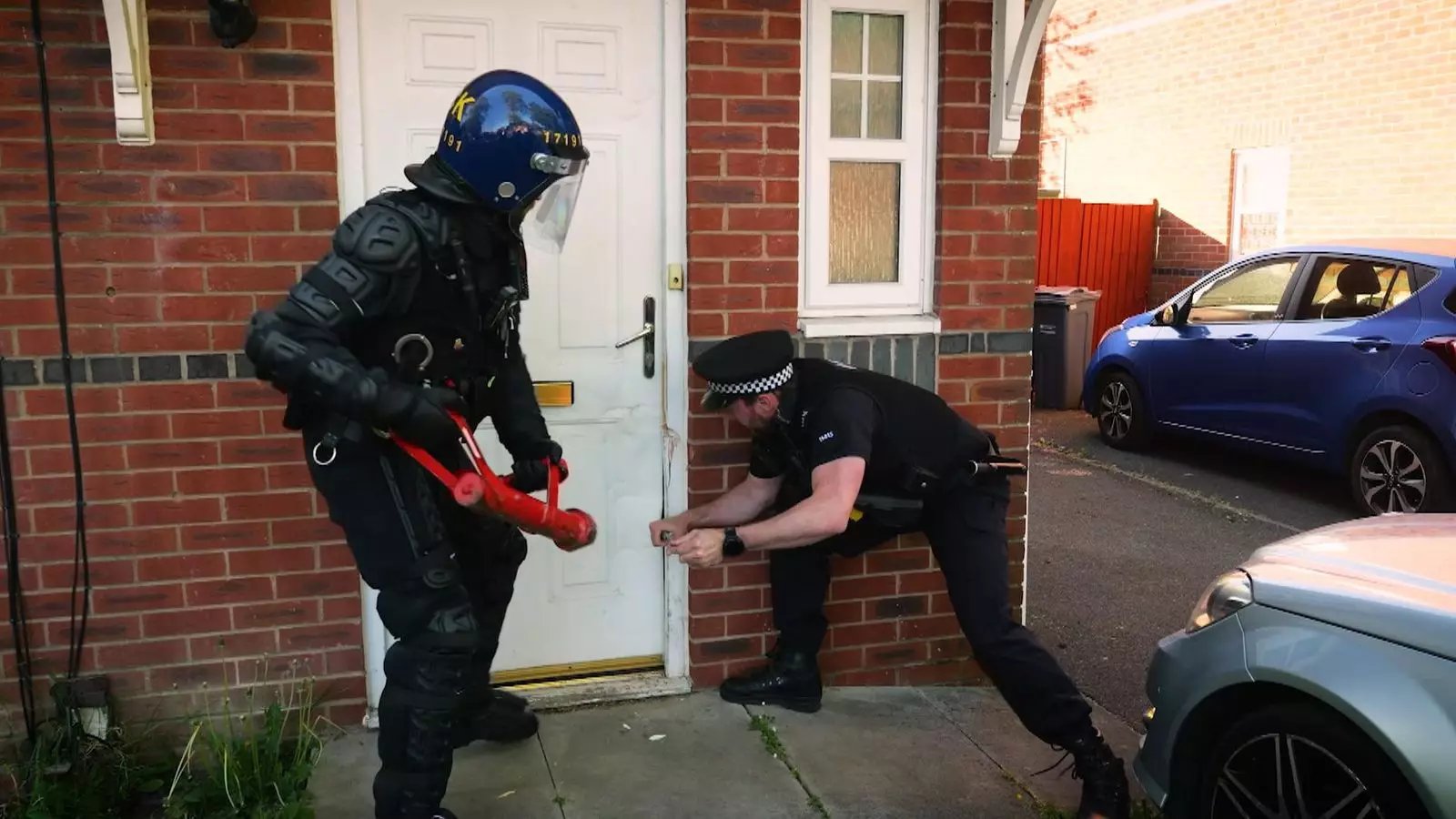In a shocking twist to the narrative surrounding cannabis, the illegal cultivation of the drug has escalated into a perilous crime wave, threatening not just the encounters of law enforcement but the safety and security of everyday citizens. Recent data from Greater Manchester Police reveals an unnerving reality: over 400 cannabis farms have been discovered in just one year. With gangs now opting for rented houses and flats, innocent neighbors find themselves unwittingly embroiled in a criminal underbelly that places their lives firmly in the crosshairs. The true cost of these operations is far more than financial; it’s a matter of life and death.
The tactics employed by these organized crime syndicates border on reckless. To circumvent the high costs of electricity essential for cultivation, they resort to the dangerous practice of bypassing electricity meters. This blatant theft of power not only raises the specter of financial loss but significantly increases the risk of electrical fires, endangering the lives of anyone in the vicinity. Inspector Bree Lanyon accurately describes this situation as a potential disaster waiting to unfold. With such crude and makeshift setups, the odds of catastrophic fires are alarmingly real.
The Violent Reality of Cannabis Farm Turf Wars
What amplifies the threat is not simply the risk of fire but the violent culture that surrounds the operation of these illegal farms. With rival gangs engaging in “taxing” — a brutal practice where they invade each other’s operations to steal the product — the stakes are distressingly high. These conflicts often escalate to extreme violence, putting anyone, including innocent bystanders, in grave danger. Such violence is a byproduct of profit-driven crime, where the immense financial incentive to cultivate cannabis leads to a “kill or be killed” mentality.
One poignant reminder of the human cost associated with this chaos was the tragic death of seven-year-old Archie York. His life was claimed by a chemical explosion linked to a cannabis factory, a stark illustration of how gang warfare can have devastating ripple effects on the community. The dealer sentenced to fourteen years in prison is a mere footnote against the backdrop of loss and societal disruption. Herein lies the moral failure of a system that often dismisses the cannabis trade as harmless.
The Role of Rogue Landlords in the Expanding Crisis
Intriguingly, the very structures meant to provide shelter are complicit in this unravelling crisis. Many landlords, often unaware of the telltale signs of illicit activities in their properties, unknowingly become pawns in this dangerous game. Rogue landlords who turn a blind eye or fail to conduct due diligence contribute to the problem, making it easier for gangs to camouflage their operations. The British Landlords Association’s chief executive, Sajjar Ahmad, felt the impact himself when one of his properties was ravaged by criminals pilfering it for drug production.
The shock and horror expressed by landlords who experience the fallout of these illicit cannabis farms highlight a systemic issue that demands urgent attention. More than mere financial incentives, the afraid voices of landlords underscore the necessity for solidarity against crime that infiltrates our neighborhoods. As pointed out by Detective Inspector Paul Crompton, the narrative that “it’s just cannabis” must be repudiated. These operations are a nexus of violence, exploitation, and rampant disregard for safety, warranting an urgent, unified response from communities.
Rethinking our Approach to Drug Policy
In grappling with the complexities of this issue, it becomes evident that a recalibration of our drug policies may be required. The traditional approach of targeting users and growers, without addressing underlying socio-economic conditions, does little to alleviate the problem. Instead, it underscores the importance of supporting responsible regulatory frameworks that prioritize public safety over criminalization.
As the lines between legality and illegality blur in our social fabric, it’s crucial we foster dialogue that brings together law enforcement, community members, and policymakers. Only collectively can we combat the criminal forces that endanger lives and create a more secure environment for all. In this pursuit, lives should not be treated as collateral damage in the ongoing war against drugs. The time for action is now; our suburbs deserve safety and tranquility, free from the shadows of violence and dread.

Leave a Reply